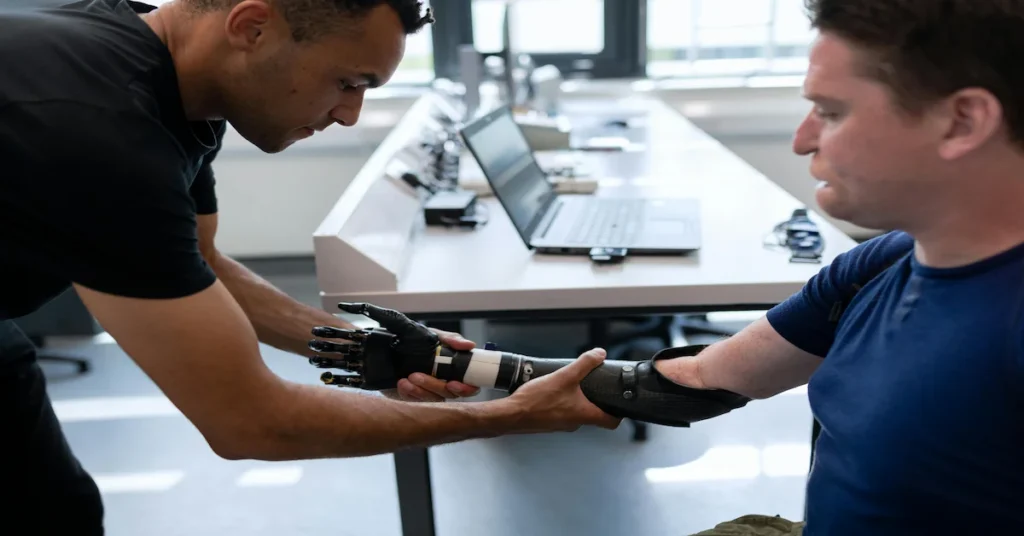The world around us is changing at an unprecedented pace. Technologies like artificial intelligence (AI) and automation are no longer futuristic concepts they are part of our present, subtly and significantly reshaping the way we live, work, communicate, and make decisions. From personalized online experiences and smart home technologies to automated healthcare systems and intelligent transportation, AI and automation are transforming every facet of modern life.
This article explores the broad and deep impacts of AI and automation on our everyday activities, offering insights into how these technologies are revolutionizing our lifestyles and what we can expect in the years ahead.
Smart Homes: The Rise of Intelligent Living

One of the most apparent applications of AI in daily life is in smart homes. Devices like smart speakers (Amazon Alexa, Google Assistant), intelligent lighting systems, smart thermostats, and home security cameras are now common. These tools are powered by AI that learns user behavior and adapts accordingly.
For example, a smart thermostat can analyze when you’re typically at home and adjust the temperature to save energy without compromising comfort. Smart security systems can distinguish between known family members and strangers using facial recognition technology, sending alerts only when necessary. Smart refrigerators can track your grocery inventory and notify you when you’re running low on essentials.
According to ZDNet, homes that incorporate AI-based automation not only improve convenience and energy efficiency but also enhance safety and long-term sustainability.
Healthcare: Revolutionizing Diagnosis and Patient Care

Healthcare is one of the industries most positively impacted by AI and automation. These technologies are making medical processes faster, more accurate, and often more accessible. AI algorithms are now being used to read X-rays, MRIs, and CT scans with impressive accuracy. They can identify early signs of diseases such as cancer, neurological disorders, or cardiovascular conditions more quickly than human professionals in some cases.
AI-powered chatbots are being used by clinics and hospitals to manage appointment scheduling, answer common health questions, and even guide users through symptom checkers. Robotic process automation (RPA) is streamlining back-end administrative tasks like medical billing, insurance claims processing, and electronic health record management.
As noted by HealthITAnalytics, the integration of AI into healthcare not only improves diagnosis and treatment plans but also frees up valuable time for healthcare providers, enabling them to focus on more critical aspects of patient care.
Personalized Shopping and E-commerce
E-commerce platforms use AI to enhance the shopping experience by delivering personalized product recommendations, predictive search suggestions, and real-time inventory updates. When you browse online retailers like Amazon or eBay, the products suggested to you are based on algorithms that analyze your behavior, preferences, and purchase history.
AI also helps automate warehouse logistics, enabling faster and more efficient packaging, shipping, and delivery. Chatbots handle customer service queries 24/7, reducing wait times and improving customer satisfaction.
A McKinsey & Company report suggests that retail companies that embrace AI-driven personalization see an average sales uplift of 10-30%.
Workplaces: Boosting Efficiency and Productivity
AI and automation are dramatically changing how we work. In modern offices, AI tools like Grammarly help enhance writing, Notion helps organize projects with AI-generated summaries, and platforms like ChatGPT assist in brainstorming and content creation.
Robotic Process Automation (RPA) is increasingly used for repetitive administrative tasks such as data entry, payroll processing, and invoice generation. These tools not only reduce human error but also allow employees to focus on more strategic, creative, and impactful work.
In industries like manufacturing and logistics, robots and automated systems perform physically demanding tasks, improving safety and efficiency. Warehouses run by companies like Amazon and FedEx rely heavily on automation to meet high-volume demands.
A Harvard Business Review article argues that rather than replacing workers, AI will augment their roles, helping them achieve better results in less time.
Transportation: Safer and Smarter Mobility
The transportation sector has embraced AI in several key areas. AI is the driving force behind self-driving cars, smart traffic management systems, and ride-sharing platforms like Uber and Lyft. Autonomous vehicles, though still in testing phases in many parts of the world, are already capable of navigating traffic, recognizing pedestrians, and optimizing routes in real-time.
AI also powers predictive maintenance in aviation and railway sectors, where it can forecast mechanical issues before they happen, minimizing downtime and improving safety.
Navigation apps like Google Maps and Waze use AI to provide real-time traffic updates, alternate routes, and estimated arrival times based on historical and current data. This helps reduce travel time, fuel consumption, and road congestion.
According to TechCrunch, smart mobility powered by AI is expected to reduce traffic fatalities and carbon emissions significantly in the coming decade.
Education: Tailored Learning for Every Student
AI is reshaping how students learn and how educators teach. Online platforms like Khan Academy, Coursera, and Duolingo use AI to adapt lessons based on a student’s progress and learning style. This personalized learning experience improves comprehension, retention, and motivation.
Virtual teaching assistants powered by AI can provide instant feedback, answer students’ questions, and suggest additional resources. Educators use data analytics to identify struggling students and tailor support accordingly.
AI is also used to automate administrative tasks like grading assignments or creating exam questions, allowing teachers to spend more time on lesson planning and student engagement.
Finance: Smarter Banking and Fraud Prevention
The financial sector has embraced automation to enhance security and improve user experience. AI-driven fraud detection systems monitor millions of transactions in real-time to identify unusual activity and prevent unauthorized access. Robo-advisors help investors build portfolios based on financial goals and risk tolerance.
Automated banking apps can categorize your expenses, suggest savings strategies, and even remind you of due bills. Banks use AI to process loan applications faster by analyzing credit history and risk factors with fewer biases than traditional systems.
A Forbes article highlights how AI is helping banks cut costs, increase transparency, and improve customer satisfaction.
Challenges and Ethical Considerations
Despite its many benefits, the widespread use of AI and automation also raises concerns. One of the biggest fears is job displacement. As machines take over routine tasks, many workers worry about being replaced. However, experts suggest that while certain roles may disappear, new ones will emerge particularly those requiring human creativity, emotional intelligence, and strategic thinking.
There are also ethical concerns around data privacy, bias in AI algorithms, and over-dependence on technology. It’s crucial for governments, businesses, and tech developers to collaborate on regulations that ensure responsible AI development and deployment.
Embracing the AI-Powered Future
AI and automation are no longer optional they are essential tools that define the fabric of modern life. From personalized entertainment to streamlined healthcare and smarter cities, their applications continue to evolve rapidly. As individuals and as a society, it’s important to stay informed, adapt to these changes, and participate in shaping a future where technology enhances human potential rather than replacing it.
By embracing AI responsibly, we can unlock unprecedented opportunities for innovation, efficiency, and well-being in our daily lives.
Frequently Asked Questions (FAQs)
1. How is artificial intelligence used in our daily life?
Artificial intelligence is used in daily life through smart assistants (like Alexa and Google Assistant), personalized online shopping, navigation apps, and smart home devices. It also powers services such as customer support chatbots, recommendation systems, and digital banking.
2. What are the benefits of automation in daily tasks?
Automation saves time, increases efficiency, and reduces human error. It simplifies routine activities like scheduling, data entry, and bill payments. In homes, it helps manage energy usage, while in businesses, it streamlines operations and boosts productivity.
3. How is AI transforming the healthcare sector?
AI in healthcare improves diagnostic accuracy, enables predictive analysis, assists in robotic surgeries, and automates administrative processes. It also supports telemedicine and patient monitoring through AI-powered tools and wearable devices.
4. Can AI and automation replace human jobs?
While AI and automation can replace some repetitive and manual jobs, they also create new roles in tech, creativity, data analysis, and human-centric services. The key is to reskill and adapt to evolving job markets.
5. Are AI-powered devices safe for home use?
Yes, most AI-powered smart home devices are safe when used responsibly. However, users should take steps to secure their data, use trusted brands, update software regularly, and enable encryption where available.
6. How does AI improve online shopping experiences?
AI personalizes the shopping journey by recommending products based on browsing history, preferences, and past purchases. It also powers virtual try-ons, chatbots for customer support, and smart inventory management systems.
7. What industries are most affected by AI and automation?
Industries like healthcare, retail, finance, education, transportation, and manufacturing are heavily influenced by AI and automation. These technologies improve efficiency, reduce costs, and open new opportunities for innovation.
8. How can I prepare for an AI-driven future?
To stay competitive, individuals should focus on learning digital skills, understanding basic AI concepts, and developing soft skills like creativity, critical thinking, and emotional intelligence that AI cannot replicate.